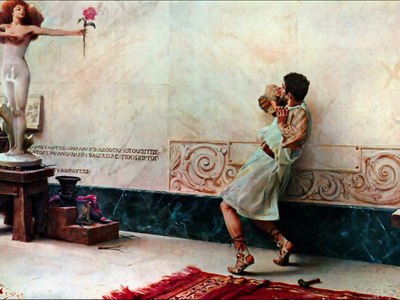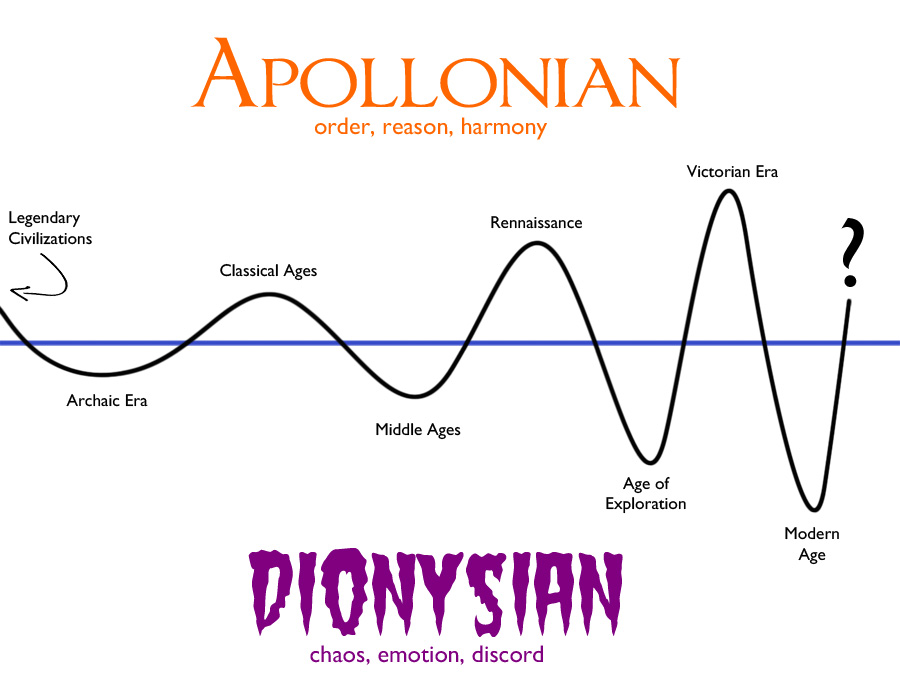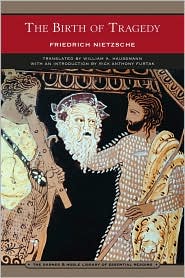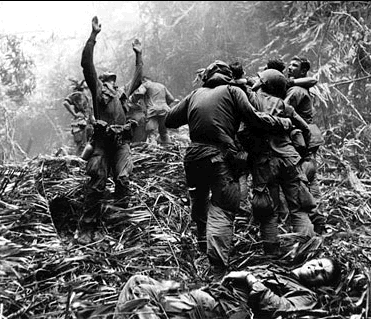“a priori” is most famously a term used by Immanuel Kant to signify knowledge that exists in the mind before sense experience…the poem however is based on a series of conditionals that are very much conditioned by experience…war based violent experience and yet is often fed by biases established a priori before experiencing the people living on other side…maybe these a prior synthetic judgements are the problem?
“if the sabbath is a form of constraint“
the shabbat or sabbath is the holy day of rest for the hebrew people; the orthodox hebrew go so far as to restrict or constrain its followers from working, traveling beyond so many miles, using electronics or technology or automobiles; it falls from sundown Friday night to sundown Saturday in our calendars.
“if jihad is the first word learned“
in islam, jihad means holy war, but mohammed referred primarily to the holy war one wages against one’s own sins
jihad tends to be the first word Westerners learn about islam, and often out mis-contextualized by western media to misrepresent islam as fanatical terrorists
“if Elie Wiesel is the holocaust”
his book Night is the most common book taught in public and private schools across the western culture as an example of the memoir of the jewish holocaust of wwii; Wiesel has become so rich and famous, he is effectively the poster child of holocaust survival, often silencing other witness testimony; he has also used his vast wealth and connections to start foundations designed to never let the world forget the jewish holocaust (perhaps to the exclusion of other historical genocides?) and he also has connections to the war hawks in israeli politics behind the aggression against palestinian settlements
“if one must expropriate gently”
a pun on exfoliating gently or scrubbing excess skin often off the face for clear skin; here expropriating means to hand over to an aggressor in mild resignation to avoid further violence, but can one still save face?
“if messianism licks at the edges of thought”
messianism in christianity is jewish or hebrew in origin and does not refer only to jesus of nazareth. messiah or christos in greek means literally anointed one and refers to the king of the hebrews as selected by god through his prophets and designated by an anointing of precious oils. the first such messiah was Saul, succeeded by David, then Solomon, eventually reaching Herod, then Jesus for the christians, but the hebrews who still follow the torah and the kabbal still await their new king or messiah much as certain sects were searching at the time of the nazarene. some argue it will bring in a new golden age for the jews, others say it signals the end times.
“if the truth does not lie in silence”
a double entendre or double meaning- can truth lie or be found in silence? or can truth lie or tell falsehood by remaining silent?
“if naf is self and brother”
short for naphtali in hebrew means wrestling or cunning and is the name of one of the 12 tribes of israel named after one of the sons of Jacob who later changed his name to israel or he who wrestles with god. Naphtali and his nine brothers beat and sold their younger brother joseph into slavery out of jealousy of their father’s preference
“if the space between two words can be bridged”
visually the gap between words, phonetically the silence (momentary as it is) between words spoken, or perhaps the abyss that lies between languages that neither comprehend one another nor care to…BUT if it can be bridged, then?
“if moderate physical pressure is acceptable”
could mean anything- the pressure of resettlement of Palestinians despite former treaties, the pressure on US foreign policy from israeli “allies”, the pressure of stones to lead to gunfire….
“if the primary target is the witness”
target of assassination so no witnesses? or target audience to achieve mass movement?
“if epistemological mastery is an unclosable wound”
in western philosophy, epistemology has always struggled at closing the wound or gap between the exterior objective reality (Kant’s noumena or thing in itself) and the interior subjective experience of perception (Kant’s phenomena or thing to us) which seem to be incommensurable
“if bittahon was trust in god now military security”
in rabbinic judaism, bittahon or bitachon refers to the trust in god’s deliverance of the hebrew people- it is this trust that enabled them to be freed from Egyptian slavery without raising a sword, it also enabled the 12 tribes to defeat their enemies in the promised land as long as their faith and practices were pure…now that trust seems placed on American financing of nuclear capabilities and military weapons development
“if there is horror at the heart of divinity”
YHWH was always struck hard, fast, and without mercy: 10th plague wiping out the first born of Egypt to liberate the hebrew slaves, ordering the death of 1/12th of the hebrews themselves for their faithless actions at the foot of Mt. Sinai, the demands to kill every man, woman, and child in the enemy tribes of the Hebrews when reclaiming the promised land, etc. Allah has fared no better historically. Nor Jesus through the acts of his followers.
“if the body goes off near the sbarro pizzeria”
suicide bombing near the pizzeria in Jerusalem 2001- 15 killed, 130 wounded
“if the apocalyptic sting is gone from hebrew”
apocalypse means literally revelation and refers to god’s revealing of his plan for man…whether in the form of the last book of the christian new testament or in the form of code deciphered through kabbal of the torah…but if the sting is gone, then it implies the plan might not be so bad for us
“if the first stage is not knowing at all”
then it asks for a leap of faith
“if this state is the golden calf”
the golden calf was the idolatrous statue blasphemously worshipped by some of the hebrews after being saved from egypt while awaiting moses at the foot of mt sinai…so worshipping a false god in the form of patriotism to a state- but what state? israel? the US? palestine? all of them?
“if ingathering means expulsion”
refers to the feast of the harvest at the end of the year…the feast of the tabernacles…but by reaping what we sow, perhaps we create the conditions for our own diaspora, exodus, exile?
“if catastrophe becomes a passion”
the passion refers to christ’s last hours of persecution that culminate in his crucifixion…the catastrophes of israel and palestine in the forms of suicide bombing, military aggression, air strikes, endless cyclical bloodshed may be a mutual persecution of the innocent for the sins of the guilty
“if we shoot and weep”
as both sides kill even as they mourn their own dead in that cycle
“if israel is not in israel”
what if the promised land of abraham is a state of mind and not a geographic location
“if the treasure house of well worn terms is laden with explosives”
language is heavy with the danger of provoking further violence and/or the dome of the mount the second holiest mosque in all of islam sits on the old location of the temple of solomon…both houses of gods and treasures to their peoples, therefore an explosive place of contention
“If ha’apalah was catastrophic breakthrough now illegal immigration”
refers to the “illegal immigration” of countless jews during wwii into british controlled palestine as there simply was no where else to go
“If the bodies of the exploding martyrs smell of musk”
suicide bombers sweat profusely in fear and anxiety as they are human beings who fear dying too
“If every breath of fresh air is a border”
could be any step away from the cities requires passing security checks OR as long as you’re breathing freely you must continue in that ambiguous state of uncertainty
“If the state no longer decides who lives or dies”
could be god decides people’s fates OR could be rogue agencies and terror cells both of which are answerable to no one
“If some are eternally innocent and good”
some- israelis, palestinians, americans,,,many if the people are simply victims
“If a key is an archival artifact”
the key of solomon was not in fact a key but a text encrypted with secrets
“If the planes return safely”
free from highjacking or suicide attacks
“If they are all enthusiasm”
the enthusiasm of life, the fanaticism of religion, the blindness of patriotism?
“If you are Hamas”
Hamas the terror/liberation group fighting for Palestine
“If one is Israel”
is israel within each hebrew citizen? is it a state of mind?
“If cruel history repeats itself as its own cure”
cyclical violence will eternally recur until there is no one left (the cure)
“If it happens inside the Sbarro pizzeria”
more than 15 will die
“If there is invasion of the order of the border”
at what point will borders become obsolete? in israel-palestine, they are ever shifting like sand dunes along the hurricane swept Florida coasts
“If the animal is discomforted during slaughter”
is there such a thing as mercy killing or humane execution?
“If the band of the blind plays and refreshments served”
???????
“If the third stage is but what can be done”
how can it end? what options do we have?
“If shahīd is martyr and witness”
murdered in 2010, a human rights activist and lawyer who defended muslims arrested under the prevention of terrorism act of 2002
“If preventative is energetic liquidation”
kill the other side to prevent their killing you and also refers to POTA prevention of terror act which aggressively arrested countless muslims in order to “prevent” terror
“If some are a community of fate”
according to brown university’s watson institute for international and public affairs: “Communities of Fate are the catalysts that can turn a loose affiliation into a powerful union, translate a leader’s zeal into a political movement, and spur an individual to act against her own self-interest for the sake of another’s welfare.”
“If we will and it is a fairy tale”
all strategies (like the communities of fate…or POTA) are a pipe dream as there can be no winning, but we’ll never know until we try…and learn
“If Sbarro”
no place is safe- can’t even go eat pizza













